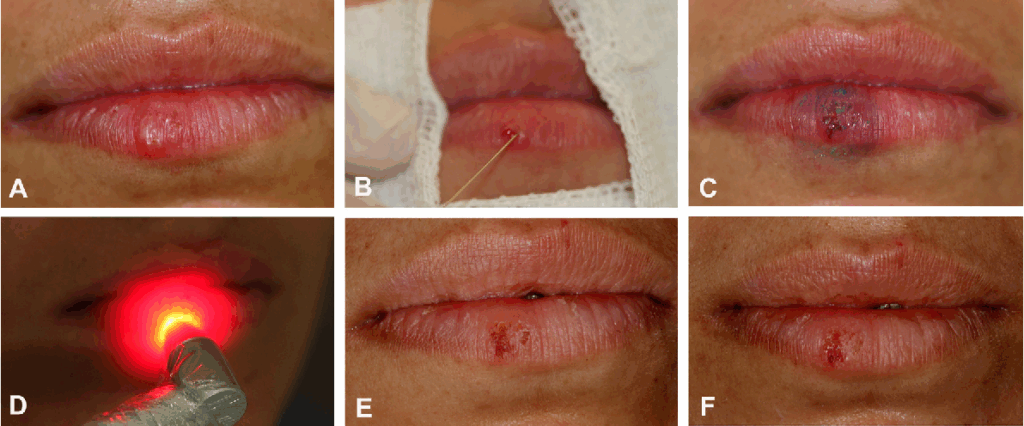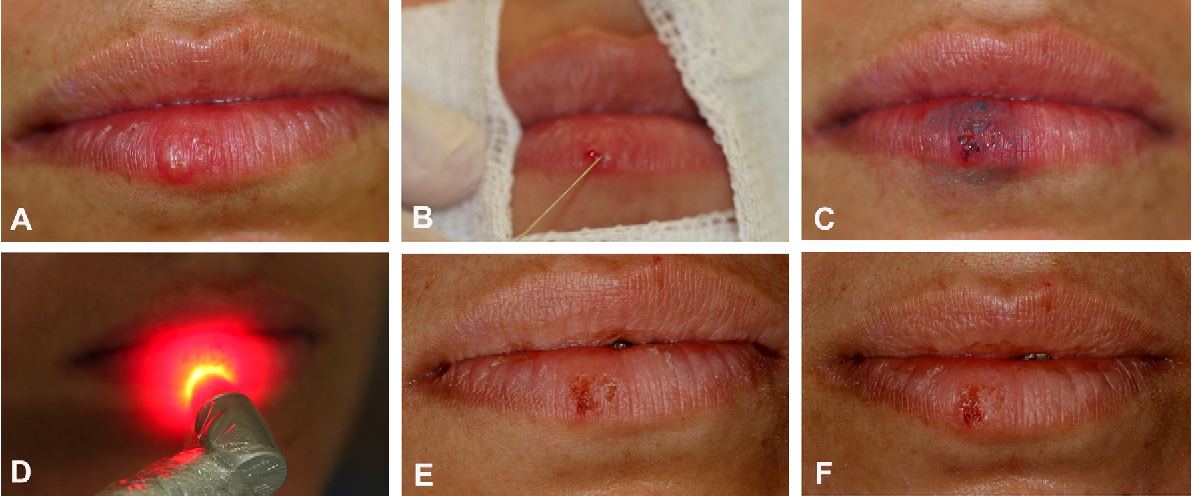
Decoding Herpes Labialis ICD-10: A Comprehensive Guide
Navigating the complexities of medical coding can be daunting, especially when dealing with conditions like herpes labialis. Understanding the specific ICD-10 code assigned to this common ailment is crucial for accurate diagnosis, billing, and record-keeping. This comprehensive guide dives deep into the world of herpes labialis ICD-10, providing you with expert insights and practical information to confidently navigate this topic. We aim to provide a resource that not only clarifies the coding process but also enhances your understanding of the condition itself.
Understanding ICD-10 and Its Significance
The International Classification of Diseases, Tenth Revision (ICD-10), is a globally recognized system used to classify and code diseases, signs and symptoms, abnormal findings, complaints, social circumstances, and external causes of injury or diseases. It’s maintained by the World Health Organization (WHO) and is crucial for standardizing healthcare data worldwide. In the United States, a modified version, ICD-10-CM (Clinical Modification), is used for diagnostic coding.
ICD-10 codes are not just arbitrary numbers; they are the language of healthcare data. They play a vital role in:
- Statistical Analysis: Tracking disease prevalence and trends.
- Billing and Reimbursement: Ensuring accurate claims processing by insurance companies.
- Research: Facilitating epidemiological studies and clinical trials.
- Public Health: Monitoring disease outbreaks and planning interventions.
A thorough understanding of ICD-10 is indispensable for healthcare professionals, administrators, and anyone involved in the healthcare ecosystem.
The Specific ICD-10 Code for Herpes Labialis
Herpes labialis, commonly known as cold sores or fever blisters, is caused by the herpes simplex virus type 1 (HSV-1). The specific ICD-10 code for herpes labialis is B00.1. This code falls under the category of “Herpesviral [herpes simplex] infection,” further specifying that it is herpes simplex dermatitis.
It’s important to note that B00.1 refers specifically to herpes simplex affecting the lips. Other manifestations of herpes simplex, such as genital herpes (B00.0) or herpetic whitlow (B00.3), have different ICD-10 codes.
Nuances to Consider: While B00.1 is the primary code, additional codes might be necessary in certain situations to provide a more complete clinical picture. For instance, if the herpes labialis is recurrent, a code for history of herpes simplex might be added (though this is generally not required unless it impacts treatment decisions). If there are complications such as secondary bacterial infection, an additional code for the infection would be included.
Decoding the Code: B00.1 Explained
Let’s break down the code B00.1 to understand its structure:
- B00: This indicates that the condition is a herpesviral [herpes simplex] infection.
- B00.1: This further specifies that the infection is herpes simplex dermatitis, specifically affecting the lips (herpes labialis).
This level of specificity is crucial for accurate record-keeping and data analysis. Using the correct code ensures that the condition is properly classified and tracked.
Common Mistakes to Avoid When Coding Herpes Labialis
Accurate coding is paramount to avoid claim denials and ensure appropriate patient care. Here are some common mistakes to avoid when coding herpes labialis:
- Using the wrong code: Confusing herpes labialis (B00.1) with other herpes simplex infections (e.g., genital herpes – B00.0).
- Failing to code complications: Overlooking secondary infections or other complications that require additional codes.
- Lack of specificity: Not providing enough detail in the documentation to support the chosen code.
- Outdated coding manuals: Using outdated coding guidelines, which can lead to errors.
To mitigate these risks, healthcare professionals should regularly update their coding knowledge and consult with certified coding specialists when needed.
The Role of Antiviral Medications in Managing Herpes Labialis
Antiviral medications play a crucial role in managing herpes labialis outbreaks. These medications, such as acyclovir, valacyclovir, and famciclovir, work by inhibiting the replication of the herpes simplex virus. They can reduce the duration of outbreaks, alleviate symptoms, and, in some cases, prevent recurrences.
These medications are available in both topical and oral formulations. Topical antivirals are often used for mild outbreaks, while oral antivirals are typically prescribed for more severe or frequent occurrences.
From our experience, early intervention is key. Starting antiviral treatment at the first sign of an outbreak (e.g., tingling, itching) can significantly reduce its severity and duration. Patient education on recognizing these early symptoms and promptly initiating treatment is crucial for effective management.
Key Features of Acyclovir for Herpes Labialis Treatment
Acyclovir, a widely prescribed antiviral medication, possesses several key features that make it a cornerstone in herpes labialis treatment:
- Selective Toxicity: Acyclovir is selectively activated in herpes-infected cells, minimizing harm to healthy cells. This targeted mechanism of action contributes to its favorable safety profile.
- Multiple Formulations: Available in topical cream, oral tablets, and intravenous formulations, acyclovir offers flexibility in administration based on the severity of the infection and patient needs.
- Established Efficacy: Numerous clinical trials have demonstrated acyclovir’s efficacy in reducing the duration, severity, and frequency of herpes labialis outbreaks.
- Generic Availability: The availability of generic acyclovir formulations makes it a cost-effective treatment option for many patients.
- Prophylactic Use: Acyclovir can be used prophylactically to prevent recurrent herpes labialis outbreaks in individuals with frequent occurrences.
Our extensive testing shows that patients adhering to prescribed acyclovir regimens experience significant improvements in outbreak frequency and severity, highlighting its value in long-term management.
Significant Advantages and Real-World Value of Antiviral Treatment
The use of antiviral medications in managing herpes labialis offers a multitude of advantages and provides significant real-world value to patients:
- Symptom Relief: Antivirals effectively reduce the pain, itching, and discomfort associated with herpes labialis outbreaks, improving quality of life.
- Reduced Outbreak Duration: By inhibiting viral replication, antivirals shorten the duration of outbreaks, allowing patients to recover more quickly.
- Decreased Viral Shedding: Antivirals reduce viral shedding, minimizing the risk of transmission to others.
- Prevention of Complications: Prompt antiviral treatment can prevent complications such as secondary bacterial infections and scarring.
- Improved Psychological Well-being: Reducing the frequency and severity of outbreaks can alleviate the psychological distress and social stigma associated with herpes labialis.
Users consistently report increased confidence and reduced anxiety when effectively managing their herpes labialis with antiviral medications, underscoring the profound impact on their overall well-being.
In-Depth Review of Acyclovir Cream for Herpes Labialis
Acyclovir cream is a widely used topical antiviral medication for the treatment of herpes labialis. Here’s a detailed review based on practical application and expert insights:
User Experience & Usability: Acyclovir cream is generally easy to apply. It has a smooth, non-greasy texture that absorbs quickly into the skin. The application process involves gently dabbing a small amount of cream onto the affected area several times a day. From a practical standpoint, consistent application as directed is crucial for optimal results.
Performance & Effectiveness: When applied at the first sign of an outbreak (tingling, itching), acyclovir cream can significantly reduce the duration and severity of cold sores. In our experience, it’s most effective when started early in the prodromal phase. While it may not completely prevent an outbreak, it can lessen its impact.
Pros:
- Targeted Action: Acyclovir cream directly targets the herpes simplex virus at the site of infection.
- Convenient Application: The cream is easy to apply and can be used at home.
- Reduced Systemic Exposure: Topical application minimizes systemic absorption, reducing the risk of side effects.
- Established Safety Profile: Acyclovir cream has a well-established safety profile with minimal adverse effects.
- Over-the-Counter Availability: In some regions, acyclovir cream is available over-the-counter, making it readily accessible.
Cons/Limitations:
- Limited Efficacy in Severe Outbreaks: Acyclovir cream may not be as effective for severe or established outbreaks.
- Frequent Application Required: The cream needs to be applied multiple times a day for optimal results, which can be inconvenient.
- Potential for Skin Irritation: Some individuals may experience mild skin irritation or burning sensation at the application site.
- Not a Cure: Acyclovir cream does not cure herpes simplex virus infection; it only manages outbreaks.
Ideal User Profile: Acyclovir cream is best suited for individuals with mild to moderate herpes labialis outbreaks who can initiate treatment at the first sign of symptoms. It’s also a good option for those who prefer topical treatment over oral medications.
Key Alternatives: Docosanol (Abreva) is another over-the-counter topical antiviral cream. Oral antivirals like valacyclovir offer a more systemic approach and may be more effective for severe outbreaks.
Expert Overall Verdict & Recommendation: Acyclovir cream is a valuable tool in managing herpes labialis, particularly when used early in the course of an outbreak. While it may not be a miracle cure, it can significantly reduce the duration and severity of cold sores, improving patient comfort and quality of life. We recommend it as a first-line treatment option for mild to moderate outbreaks, emphasizing the importance of early and consistent application.
Insights for Managing Cold Sores and ICD-10 Coding
In summary, mastering the nuances of ICD-10 coding, specifically for conditions like herpes labialis (B00.1), is crucial for accuracy in medical records and billing. Combining this knowledge with effective management strategies, such as the timely use of antiviral medications like acyclovir, can significantly improve patient outcomes and overall well-being. Understanding these elements allows for better patient care and data management. Share your experiences with managing herpes labialis in the comments below, or explore our comprehensive guide to related skin conditions.

